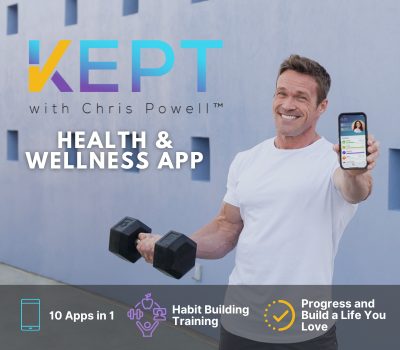The Effects of Light: How to Optimize Your Light Exposure for Energy, Clarity & the Best Sleep of Your Life
Struggling with Low Energy and Poor Sleep? Light Could Be the Culprit
Ever wake up groggy, struggle to focus throughout the day, and then find yourself unable to fall asleep at night? If that sounds familiar, your light exposure may be affecting your sleep cycle.
Light plays a major role in regulating energy levels, focus, and sleep cycles. However, in today’s world—filled with artificial lighting, screens, and indoor living—our bodies are constantly exposed to light in ways that disrupt the natural circadian rhythm.
In this guide, we’ll explore the effects of light on sleep and, more importantly, how you can optimize your exposure to feel more awake during the day and get the best sleep of your life at night.

How Light Regulates Your Sleep-Wake Cycle
Your body operates on an internal clock known as the circadian rhythm, which dictates when you feel alert and when you feel sleepy. This rhythm is driven by melatonin, a hormone that promotes natural sleep cycles when it’s dark.
Morning Light: The Natural Wake-Up Call
When strong light—especially morning sunlight—enters your eyes, it signals your brain to reduce melatonin production and increase cortisol (in a healthy way), making you feel awake and alert. This morning sunlight benefit helps regulate your circadian rhythm for the rest of the day.
Evening Light: The Enemy of Sleep
Melatonin production can be disrupted by blue light from screens (phones, laptops, TVs), which tricks your brain into thinking it’s still daytime. This blue light and sleep disruption delays your natural wind-down process, making it harder to fall asleep.

Optimizing Light Exposure for Energy & Better Sleep
Morning: Get Natural Light as Soon as Possible
- Spend 10–30 minutes in the sun within an hour of waking (outdoor exposure works best).
- If it’s cloudy or winter, use a light therapy lamp (around 10,000 lux).
- Open your curtains wide to let in as much natural light as possible.
Why? Morning sunlight benefits include resetting your circadian rhythm, boosting dopamine (improving mood), and strengthening your sleep-wake cycle.
Afternoon: Power Up with Midday Light
- Step outside for 5–15 minutes of daylight to boost energy naturally.
- If you work indoors, take breaks near a window.
- Go for a brisk walk in the sun for a movement + light energy boost.
Why? Natural ways to boost energy include regular daylight exposure, which prevents the dreaded afternoon slump and improves mental clarity.

Evening: Dim the Lights & Reduce Blue Light
- 2–3 hours before bed, dim overhead lights.
- Avoid screens 60 minutes before sleep (or wear blue light-blocking glasses).
- Use warm, red/orange-toned light bulbs, which don’t suppress melatonin like blue/white light.
- Consider candlelight or Himalayan salt lamps for a cozy, sleep-friendly atmosphere.
Why? Using the best light for sleep helps your body naturally produce melatonin, making it easier to wind down.
Night: Keep It Dark for Deep Sleep
- Use blackout curtains or wear an eye mask to block light.
- Cover electronics with glowing LED lights (even tiny light sources can disrupt sleep).
- Avoid looking at your phone if you wake up at night—it can halt melatonin production instantly.
Why? No light at night = deep, undisturbed sleep and better circadian rhythm regulation.

Bonus: Track & Improve Your Sleep with the KEPT App
Want to monitor and improve your sleep naturally? The KEPT app offers a sleep tracker and personalized tips to help you build better nighttime habits.
Optimize your light exposure, boost your energy naturally, and unlock better sleep starting today!
Get 25% off KEPT now and start changing your sleep for the better!
The Takeaway: Light Is a Powerful Sleep Tool
- Morning sunlight = Wake up feeling refreshed
- Afternoon light = Boost focus and energy
- Dim evening light = Prepare your body for sleep
- Total darkness at night = Deep, undisturbed rest
With just a few tweaks to your daily light exposure, you can take control of your energy levels, mental clarity, and sleep quality.
Start by spending a few minutes outside in the morning, dimming your lights in the evening, and prioritizing darkness at night—you’ll be amazed at the difference it makes!
References
Chang, A. M., Aeschbach, D., Duffy, J. F., & Czeisler, C. A. (2015). Light-emitting eReaders at night: Sleep, circadian timing, sleep, and alertness the following morning. Proceedings of the National Academy of Sciences, 112(4), 1232-1237.
Gooley, J. J., Chamberlain, K., Smith, K. A., Khalsa, S. B., Rajaratnam, S. M., Van Reen, E., & Czeisler, C. A. (2011). Room light before bedtime suppresses melatonin onset and shortens melatonin duration in humans. Journal of Clinical Endocrinology & Metabolism, 96(3), E463-E472.
Roenneberg, T., & Merrow, M. (2016). The circadian clock and human health. Current Biology, 26(10), R432-R443.














